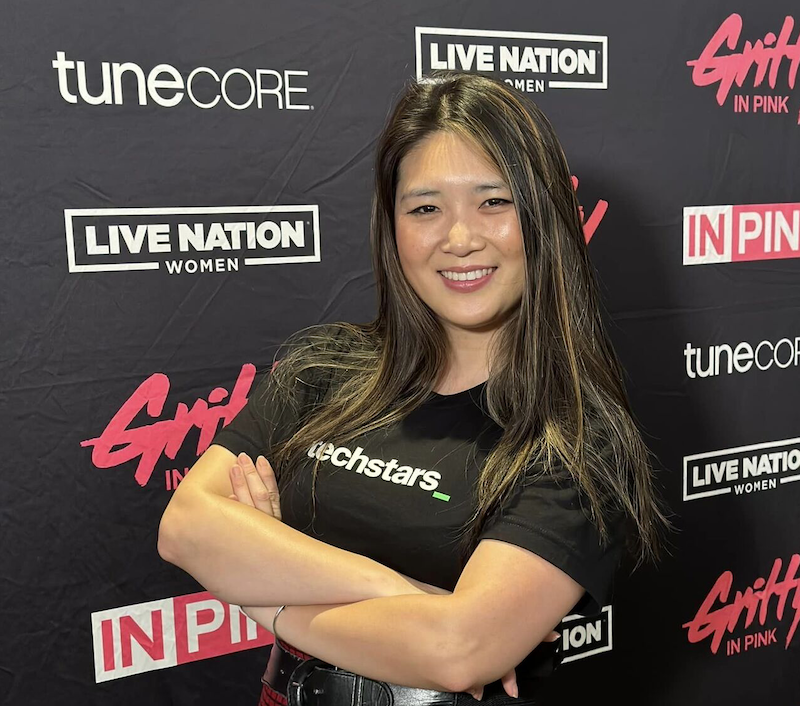On one cold winter night during the COVID-19 pandemic, Holly Diamond’s mother placed a “Help Wanted” sign outside their family BBQ restaurant in Koreatown in Midtown Manhattan.
This should have been the usual hiring routine, but this time no one showed up. With the pandemic convincing many New Yorkers to stay at home, the traditional approach wasn’t working.

“Of course people aren’t coming,” Holly told her parents. “Everyone is online.”
That’s when the idea for WorkOnward, a map-based hiring platform, was born.
Today, the startup is helping immigrants, single parents, older workers, and other vulnerable jobseekers to find opportunities they might otherwise have missed.
According to the WorkOnward website, more than 1,000 businesses — such as Fulton Burger, Katz’s Delicatessen, and Tropical Juice Bar — rely on the platform for their hiring needs.
For small businesses, monthly pricing ranges from free for a single vacancy to $39 for unlimited posts, while job seekers can join at no cost.
How to overcome systemic barriers
Diamond has been passionate about human rights since studying social work at Fordham University. She recalls one particularly inspiring field trip to the United Nations that motivated her to advocate for those dealing with workplace discrimination.
“I wanted to help immigrants, refugees, international students, and other people facing systemic barriers,” Holly explains.
She ended up creating a recruiting agency that focused on matching candidates with opportunities regardless of their background.
She later realized that small businesses are struggling with technology adoption, especially for hiring. Many other restaurants and mom-and-pop shops lack the resources to reach the right candidates in a cost-effective way.
WorkOnward allows business owners to attract candidates in their neighborhoods, including people who might otherwise have been overlooked due to their background.
Immigrants, for example, often encounter language barriers and cultural differences when seeking employment, but these are just some of the many obstacles they face.
Bhargav Sutariya, WorkOnward product designer and co-founder, knows these challenges all too well.
“I came to the U.S. as a student from India, and at some point, when my work permit ended, I wasn’t able to get a job,” he recalls.
Bhargav saw firsthand how WorkOnward could help immigrants navigate some barriers. “I can do any product design job, but here I’m really helping people,” Bhargav says.
Holly first met Bhargav while recruiting tech professionals for one of her clients and was quickly impressed by his skills and expertise. Later, when she shifted her focus to developing her hiring platform, the two reconnected.

To help older adults, immigrants, and non-native English speakers who struggle with traditional interfaces, Bhargav prioritized simplicity and integrated Voice AI.
One unique feature that WorkOnward offers is video resumes, which allows jobseekers to showcase their personalities and backgrounds.
Funding, competition, and staying true to the mission
The U.S. legal immigration system remains a major headache forWorkOnward.
“We haven’t figured out how we can help immigrants who don’t have a work permit,” Bhargav said. The team believes a collaborative effort is needed to build advocacy for immigrant communities.
Another challenge is fundraising. Although the startup received around $240K from the TechStars accelerator and smaller grant programs, raising a VC round has been challenging.
“We are the underdogs,” Holly admits. “We didn’t go to Harvard, we didn’t work for McKinsey, and we don’t have family wealth.”
Holly’s ardent belief in the company’s mission keeps her going. “At the end of the day, money can’t buy everything. Real connection with the people we serve — that’s where we excel.”
Some employers who posted jobs on the platform hire within 24 hours, according to Holly.
“That’s powerful,” she said. “We want to help small businesses thrive, and that includes providing ongoing support beyond hiring — like onboarding, retention, and workplace communication.”

Even though the pandemic has ended, many small businesses continue to struggle to stay afloat. This year, rising stock prices affected potential WorkOnboard customers, particularly food businesses.
Several restaurants in Koreatown have closed, and Holly is grieving their loss. She hopes that next year more small businesses will be encouraged to stay open, helping to build a thriving local economy.
Platforms like WorkOnward can play a crucial role in the recovery, Holly believes.
“Small businesses can thrive, and that will translate into more job opportunities, local job growth, and a better future for everyone,” she says.








